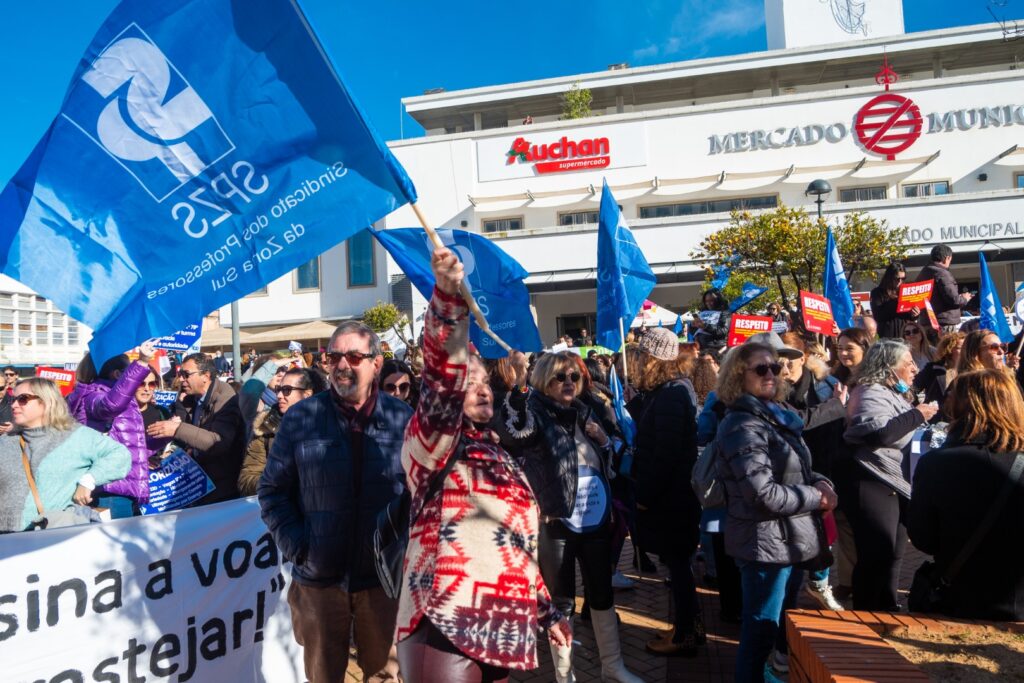The strike for an indefinite period called by the Union of All Education Professionals (STOP) comes to an end this week, more than four months after the first day of stoppage, but with no response to the main demands.
Despite the fact that the advance notices given extend until Sunday, today is the last working day of a stoppage that brought together teachers and non-teaching workers, and which, especially in the first weeks, led to the closure of several schools.
A “citizenship lesson”: this is how the coordinator of Stop, André Pestana, described the protest, defending, from the beginning, that it was not the strike that harmed students' learning, but the worsening shortage of teachers.
Initially, it was aimed only at teachers and came about as a response to the revision of the competition system that was, at the time, being negotiated between the Ministry of Education and the unions, but also to demand answers to old claims.
Among the main demands, they claimed the counting of all service time (six years, six months and 23 days), the end of vacancies for access to the 5th and 7th echelons and better working and salary conditions, also for non-teaching workers, who were later included in the strike.
Faced with the instability created in schools and the uncertainty of the strike, with no end in sight, the Ministry of Education ended up asking that minimum services be enacted, which were set by the arbitral tribunal.
The minimum services came into force after the second month of the strike and were successively extended by the court, which later included teaching activities (at least three hours of classes or teaching time per day).
The strike was also marked by an opinion from the Attorney General's Office (PGR), following a request from the Ministry of Education, on the legality of the way in which they were being carried out.
The PGR considered that there was a divergence between the strike notices delivered to the Ministry of Education and the information given by the union to the teachers, because, despite the notices referring that the strike would correspond to the daily working day, the Stop claimed to be possible for teachers to decide the concrete duration of the period in which they join the strike, making it, in these cases, a strike with characteristics similar to those of the 'self-service' strike.
The end of the strike for an indefinite period does not, however, mean the end of the STOP struggle, which has already called for a new national strike for the 24th, 26th, 27th and 28th of April. On the 25th of April, the union returns to the streets with a demonstration in Lisbon, the fifth since December.
“It was decided, with the strike committees, to suspend [the strike indefinitely] on April 16, but they also left open, because negotiations continue, new forms of struggle that were necessary”, explained, on Tuesday, Carla Piedade, from the direction of Stop, to Lusa.



















Comments